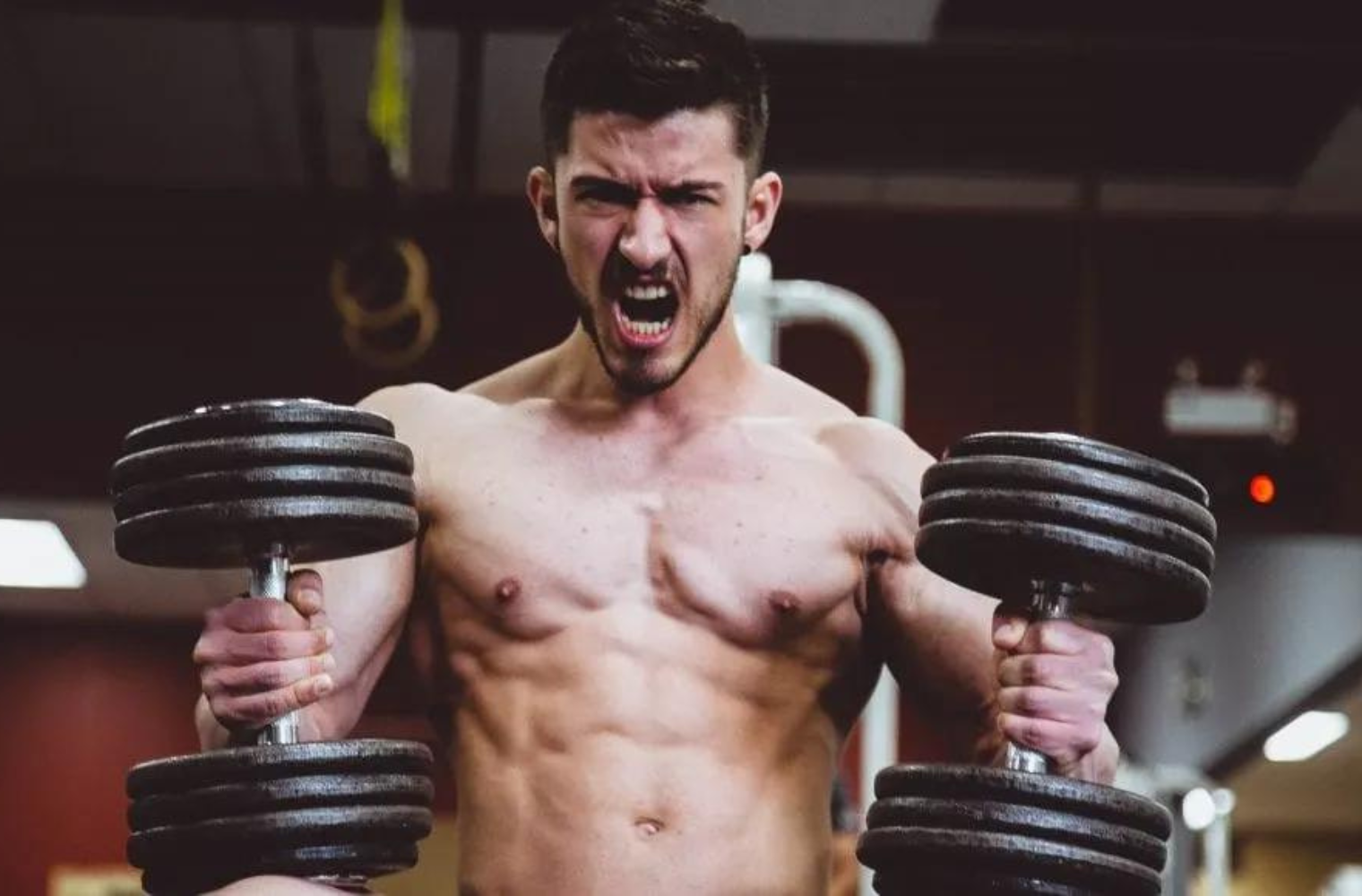Have you been hitting the gym and lifting weights regularly, but feel like you’re not seeing any noticeable changes in muscle size? Or perhaps you see that your lifts are continuing to increase week after week, yet you don’t look any bigger or experience improved physique functions.
If this sounds like an all-too-familiar struggle for you, then unfortunately it means one thing – You’re getting stronger without getting bigger.
But why is this happening?
In this blog post we'll break down the key reasons as to why this less muscle development might be occurring in your body and provide solutions on how to move onto a new phase of muscle gain and strength growth.
Understand the Difference between Strength and Size Training
The first issue to understand here is that getting stronger in the gym and achieving muscle size gains body weight, are two very different training goals. When you’re strength training, your primary goal is to increase the amount of force or power you can apply with each lift. You don’t necessarily need to build more muscle mass for this; instead, you can make small biomechanical adjustments to how you lift and make your body more efficient in its movements.
When you’re looking to increase muscle size, however, your goal is to create a hypertrophic state on an individual muscle fiber level — essentially breaking down the muscles in order for them to rebuild themselves back up as bigger and stronger muscle fibers. This process requires much higher levels of tension and volume than a typical strength training session.
Also, be aware of the difference between muscle hypertrophy and muscle endurance. Strength training is designed to increase the amount of force applied when lifting, whereas size training is about increasing the density of your muscles. Muscle hypertrophy gains endurance training involves maintaining a specific muscle groups weight load over an extended period of time — this is not the same as building muscle size.
Finally, be aware that building muscle mass and losing fat are two separate goals. While some people might achieve negligible size gains from strength training due to increases in their muscle-to-fat ratio, this isn’t necessarily the best approach if your goal is to gain weight or build larger muscles.
Increase Your Calorie Intake to Build Muscle Mass
The most common reason why someone might be getting stronger without gaining muscle size is that muscle gains are due to a lack of calorie consumption. Your body needs fuel to build muscle, and if you’re not eating enough calories then your body won’t have the necessary nutrients to synthesize new muscles.
It's important to increase your overall caloric and protein intake, while keeping in mind the types of foods you should be eating. A diet rich in whole foods and lean proteins will help to provide the necessary nutrients your body needs for muscle growth.
Plus, keep in mind that your body can only build muscle if it’s in a caloric surplus — meaning you should be consuming more calories than you're burning. If your calorie intake is too low, then your body won’t have the energy to synthesize new muscles and instead will focus on maintaining its existing muscle mass.
Choose Compound Exercises for Maximum Results
When it comes to building muscle, compound exercises are your best bet. Compound exercises involve multiple joints and major muscle groups or muscles working together in order to lift or move a weight. This type of training has been proven to stimulate the most growth hormones and help you build larger muscles more quickly than isolation exercises such as bicep curls or tricep extensions.
Compound exercises also require the most energy and create the greatest amount of metabolic stress, which is necessary for building lean muscle mass. Examples of compound exercises include squats, deadlifts, bench presses, pull-ups and overhead presses.
Plus, compound exercises allow you to use heavier weights, which will provide the necessary stimulus muscle activation for your body to build larger muscles.
Finally, make sure that you're gradually increasing the weights you're using over time. Plateaus are common when it comes to strength training, and this is why progressive overload in resistance training is so important — constantly challenging your muscles with heavier and more difficult lifts will ensure that your body continues to build muscle mass.
Lift Heavy Weights for Strength Gains
Although it's important to lift heavy weights for size gains, lifting heavy for strength gains is also beneficial for muscle group. When you lift heavy weights, your body releases anabolic hormones such as testosterone and growth hormone which helps to promote muscle growth. Plus, lifting heavier weights increases the amount of tension on your muscles — this is necessary in order to stimulate the most growth.
In addition, heavy lifting helps to increase your neural efficiency — this means that your muscles can produce more force with consistent effort with each lift. This is important for building strength without necessarily gaining muscle size.
Finally, make sure you're pushing yourself and challenging your muscles with heavier weights when necessary. If you find that you’re no longer able to continue adding more weight to your lifts, then it’s time to move onto a new program or switch up your routine.
Alternate Workouts to Avoid Plateaus
It's also important to alternate your workouts, as this will help you avoid plateaus. Changing up the exercises you do and altering the order of your workouts can keep your body guessing and stop it from getting too comfortable with any particular routine. This is why it’s so important to switch up the types of exercises you’re doing on a regular basis.
For example, if you’ve been doing the same exercises for several weeks and aren’t seeing any changes in muscle size, then try switching to a new routine and introducing different exercises. This will help to keep your muscles guessing and ensure that they continue to grow.
Plus, it’s important to remember that your muscles need rest in order to grow. Make sure that you’re taking a few days off each week and allowing your muscles time to recover before hitting the gym again.
Finally, make sure that you’re getting enough sleep each night. Sleep is essential for muscle growth and recovery — it’s during these hours of rest that your body is able to synthesize new muscle tissue. Not to mention, a lack of sleep can lead to an increased appetite which could hinder your size gains if you’re not careful.
Monitor Your Rest Periods and Sleep Quality
Finally, it’s important to monitor your rest periods and sleep quality in order to ensure that you’re getting the most out of your workouts. Aim for at least 8 hours of quality sleep each night — this will help to provide your body with the necessary energy it needs to build muscle mass.
Also, make sure that you’re taking enough rest days throughout the week. A minimum of two to three days off from the gym will help your muscles recover and build back up stronger than before.
Why Am I Getting Stronger But Not Bigger?
If you’ve been hitting the gym hard but don’t seem to see any noticeable changes in your muscle size, then it’s important to look at the possible reasons why. It could be due to a lack of calorie consumption, not lifting enough heavy weight or enough weights, or simply not pushing your muscles hard enough with each workout.
To ensure that you’re getting the best results from your workouts, make sure you’re taking into consideration all of these factors and changing up your routine when necessary. With the right approach, you can ensure that you’ll not only get stronger but also bigger!
If you need more guidance or help in developing an effective workout routine, consider working with a personal trainer. They will be able to provide you with personalized tips and advice that is tailored to your goals and body type. This can go a long way in helping you get the most out of your workouts and reach your goals faster.
FAQs
Should I be taking supplements to help me gain muscle?
Although supplements can help you increase your energy levels and make it easier for your body to synthesize new muscle tissue, they should not be used as a replacement for proper nutrition. Eating a balanced diet full of lean proteins, fruits, vegetables, whole grains and healthy fats is the best way to ensure that your body has the fuel it needs to build muscle.
Can I build muscle without lifting weights?
Yes, it is possible to build significant muscle mass and strength without using weights. Bodyweight exercises such as push-ups, pull-ups, squats and burpees are effective at helping you increase your muscle size and strength. Additionally, HIIT (high intensity interval training) workouts can be used to help you gain lean muscle mass.
How often should I be lifting weights?
It is recommended that you lift weights two to three times a week for optimal results. However, it's important to make sure that you're giving your body enough time to rest and recover in between workouts. This will ensure that your muscles can rebuild themselves stronger and bigger than before. Additionally, if you find that you’re not seeing results from your workouts, then it may be beneficial to switch up your routine and introduce some different exercises.
Conclusion
All in all, getting stronger but not bigger can be frustrating. If this is what you’re currently experiencing, it’s important to take a step back and review your training program.
Assess if your nutrition is on track or not, and make sure that you are aware of how much rest you're taking between workouts. Make sure also to ensure proper form is used for each exercise.
Additionally, adding intensity and progressive overload into your routine will help create more muscle growth over time.
Working with a coach can be very effective to help discover the underlying issues preventing maximal muscle growth and proper strength gains from happening.
Lastly, addressing any mobility restrictions or imbalances in the body can provide long-term sustainable growth while restoring balance in the body.
Remember to keep pushing forward even when things don't go as planned so that you can reach your goal - Why Am I Getting Stronger But Not Bigger.


